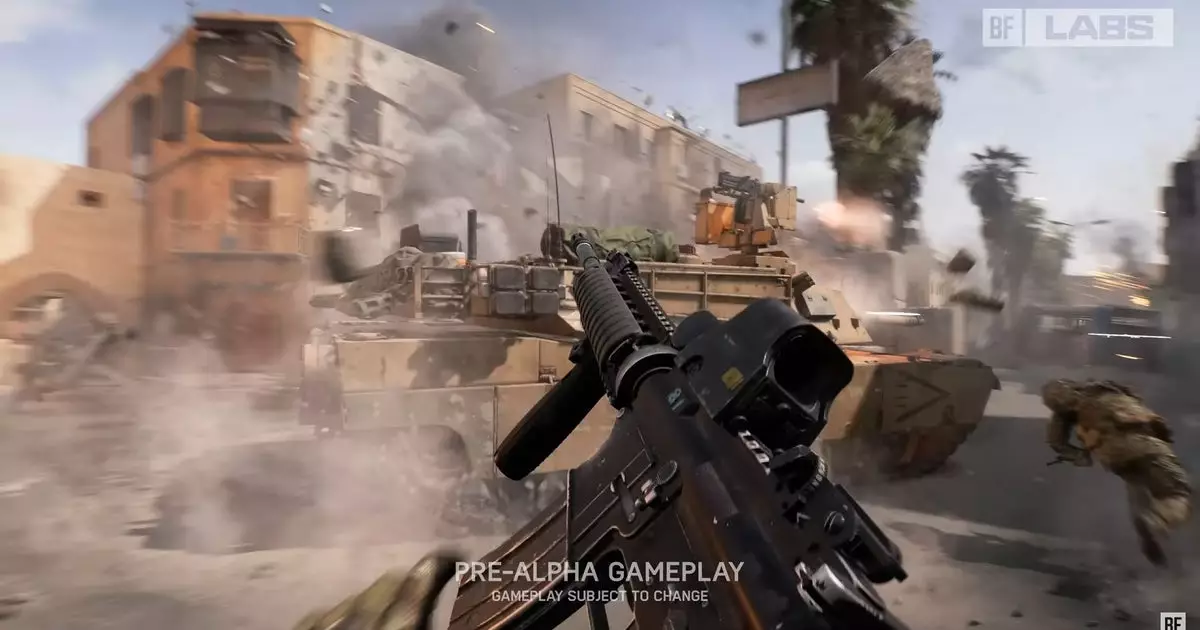A new chapter in the Battlefield franchise is upon us, despite the ambiguity surrounding its official title. A recent promotional video offers a glimpse into what the developers have in store, filled with explosive sequences, gunfire, and collapsing structures. While tantalizing, the video’s real value lies in its more substantial commentary on the game’s evolution, especially when it comes to the promise of enhanced player experiences. With producers from renowned studios like DICE, Criterion, Motive, and Ripple Effect contributing to its development, anticipation is certainly mounting for the next installment in this beloved series.
The video paints a vivid picture of what lies ahead, showcasing familiar gameplay elements such as rocket-fueled destruction and heavy vehicle warfare. Indeed, getting a sneak peek at rendering mechanics through explosive visuals is engrossing, yet one must question how much of the hype should be taken at face value. Producers predominantly share scripted excitement about “leveling up” the “core experience,” which, to those in the know, may sound like a repackaging of long-established forms of chaos—a hallmark of the series rather than anything radically new.
Like many releases in the gaming industry, the concept of a “Battlefield Labs” program is intriguing, presenting players with the opportunity to engage early with the game via playtesting. In essence, it reflects a larger trend among developers to involve the player community in shaping their games, albeit through confidentiality agreements reminiscent of typical industry tactics. The allure of being part of the development process can easily overshadow the pragmatic implications of such promises, as corporations look for feedback while still exercising strict control over what gets revealed.
With representatives from multiple studios touting unity, it is hard to ignore the underlying complexities that also accompany such collaborations. Merging creative factions like Criterion and DICE sounds ideal on paper. Yet, the postponement of Criterion’s future projects, notably the next Need for Speed game, raises questions about the balance between game development goals and corporate interests. Furthermore, the previously involved Ridgeline Games, now shuttered by EA, showcases the fragility of these partnerships—where enthusiasm is often shadowed by uncertain financial backing.
Despite the glitz and glamour of marketing, the real-world challenges facing the development team suggest a bumpy road ahead. The exciting prospects of new mechanics and gameplay ideas may still take time to bet on, particularly with multiple studios juggling their plates. As players, we remain cautiously optimistic; the legacy of Battlefield is legendary, but the constant evolution of gaming technology and audience expectations means that surpassing prior successes will require serious innovation and dedication. Only time will tell if this new endeavor will delight longtime fans and newcomers alike.


Leave a Reply